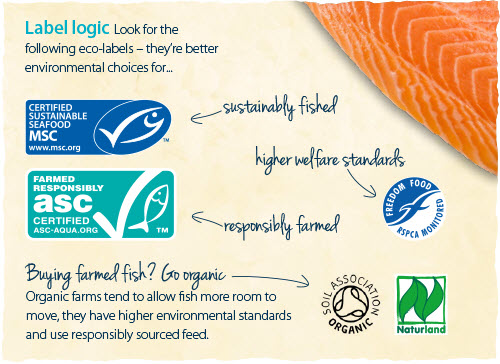Climate change is happening. It’s real, it’s scary, and it’s undeniable. Our earth is giving us warning signs left and right, imploring us to change our ways before it’s too late. Some recent news stories I’ve come across:
- State of Emergency Declared After 50 Polar Bears Invade Russian Town
- Massive cavity opening in Antarctic glacier is ‘disturbing’ sign of climate change, says NASA
- Rapidly declining insect populations spell ‘catastrophic’ trouble, scientists warn
We tend to assume that our governments, big corporations and world leaders will make changes…but they aren’t making them quickly enough.
I get it. I understand this assumption. It only makes sense that these large conglomerates should be making serious changes to their environmental impact. The bigger your carbon footprint, the bigger your responsibility to the environment.
However, you are still responsible for your own footprint. Your actions are well within your own control.
We might be tempted to shrug it off and say “The planet’s too far gone, it’s out of my control. There’s nothing I can do to help.” But that’s where we’re wrong.
In the words of 16 year old climate change activist, Greta Thunberg, “You are never too small to make a difference.” Greta made international headlines last year when she started the first school strike over the climate, raising international awareness of our dire predicament. She since has addressed the United Nations on multiple occasions. Watch her most recent speech here.
You say you love your children above all else, yet you are stealing their future in front of their very eyes.
-Greta Thunberg
I’ve come up with 15 ways you can reduce your footprint and help save the planet today. By making some conscious changes to your daily routine, you can make a big difference in the fate of planet Earth.
1. Eat vegetarian (or better yet, vegan) today
The meat and dairy industry is on track to be the world’s biggest contributor of greenhouse gases, even beating out big oil. Experts say that leading a vegan diet is the single greatest thing you can do to reduce your environmental impact. If the entire U.S. did not eat meat or cheese for just one day a week, it would be the equivalent of taking 7.6 million cars off the road.

2. Shop secondhand
When you buy something secondhand, there are no signals being sent up the supply chain to produce more. It’s a sustainable alternative to pouring more money into the toxic fast fashion industry. Did you know it takes 1,800 gallons of water just to make one pair of blue jeans? By shopping at your local thrift stores, you’re protecting our earth’s most vital resources.
3. Take your reusables
- Take your reusable coffee cup to Starbucks
- Use your reusable bags at the grocery store (both at the checkout and for produce)
- Ask the deli/bakery if you can use your own containers
- Have your bamboo fork and knife along when you get takeout
- Use your reusable water bottle
Utilizing eco-friendly, reusable options not only keeps plastic out of our oceans, but it signals to companies that consumers want change. Other customers will notice what you’re doing and will hopefully bring their reusables next time. Never underestimate the power of the ripple effect in society!
4. Swap soap bars for liquid soap
By eliminating the plastic packaging that accompanies liquid soap, you’re helping to keep plastic out of our oceans. Traditional soap bars are making a comeback in the UK, in a national effort to combat plastic waste. Be part of the change and make the switch today!

5. Contact your representative
Make it known that voters care about climate change! Write a personalized email. It doesn’t have to be long–just a couple of paragraphs will get your voice heard. Here are some tips on how to compose that email. Better yet, pick up the phone and give them a call. Citizens’ Climate Lobby makes this easy by providing you with the phone numbers of your representatives and a script to use. Make sure you’re registered to vote and cast your ballot for the most environmentally conscious candidate.
6. Conserve water
Of course, you can turn off the water while brushing your teeth and take shorter showers. There are also less obvious ways to conserve water. Install a low-flow faucet in your kitchen. Use a tub to wash dishes in instead of keeping the water running the whole time. My new personal favorite is to use the leftover water from steaming veggies or cooking pasta to water my plants.
7. Reduce food waste
One third of all food produced worldwide goes to waste, and all of those food scraps that get buried in landfills? They release methane. A TON of methane. Be proactive in preventing this problem. Make a meal plan for your family, only buy what you need, and shop with a list. These are the three main ways I’ve found to be most helpful in reducing food waste in my kitchen. You can also use your veggie scraps to make broth (instructions here), or even start composting.

8. Take public transport
Get familiar with your city’s public transport system. What’s available for you to use? For us, Tokyo has an extremely effective metro system that we are able to use regularly. Driving is discouraged by expensive tolls along Japanese highways and pricey parking lots. Because of this, Tokyo’s air pollution is much lower than you would expect from the world’s largest city. By moving more people with less vehicles, greenhouse gas emissions are significantly reduced.
9. Buy locally
Frequent your local farmers market and support small business in your community. This helps the environment on so many different levels. You can often bring your own bags to avoid any packaging altogether. Produce isn’t being shipped thousands of miles, so you’re helping to save on greenhouse gas emissions. If it wasn’t a small farm, this land may otherwise be developed for commercial use. By helping to preserve farmland, you’re keeping the habitat of insects, birds and animals safe.
10. Say no to palm oil
Palm oil is in a lot of common products (Nutella, face wash, and frozen pizza to name a few) and it’s devastating for the environment. Endangered species such as the orangutan, Borneo elephant and Sumatran tiger are being torched out of their lifelong homes and now face extinction.

Huge tracts of rainforest are destroyed to make way for palm oil plantations. Maybe you’re familiar with a recent video that’s surfaced of an orangutan trying to fight off a bulldozer. It’s like a scene out of Avatar, but in real life. Educate yourself on the different names for palm oil and help boycott the industry.
11. Contact Amazon to reduce plastic packaging
Email Amazon to let them know that you would like a note on your account requesting as little plastic packaging as possible. Submit the form in just one click from a fellow blogger’s site. Although warehouse packers won’t always notice this note, some of them will. It also signals to Amazon that consumers want less plastic packaging. If just a tiny fraction of Amazon customers contact them with this request, that’s still a lot of requests!

12. Donate to someone who can help firsthand
If you’re blessed with a little extra spending money, there are plenty of environmental groups who will use your dollars effectively. Whether you have a soft spot for keeping the rainforest alive, cleaning plastic out of the ocean or want to support scientists whose research helps bring about green legislation…there is a charity that will use your dollars with integrity. Here’s a list of some of the best environmental charities you can support.
13. Pick up trash
Volunteer with a local group to pick up litter along the road. Organize your own little group of friends to pick up a particularly dirty area in your community. Get in the habit of picking up trash, wherever you go! Do Mother Earth a favor and grab that candy wrapper off the sidewalk next time you’re taking a walk.

If you live near the ocean, grab a couple friends and join the next ocean cleanup. If you live in the U.S. but don’t live near the ocean, check out this list of local river cleanups instead.
14. Use energy efficient lighting
Use energy efficient bulbs around your home and get in the habit of turning off the lights when you leave the room. The lights in our apartment run on sensors, so I have to remind myself to still turn them off when I leave the room. Even if the sensor will turn the light back off automatically after 10 minutes, that’s still 10 minutes of lighting I didn’t need to use!
15. Choose sustainable seafood
Much of the fish population is in serious decline, with overfishing threatening marine wildlife and habitats around the world.
Stay away from endangered species such as tuna, instead casting your vote for a more sustainable option. Type in the name of your favorite seafood on the MCS’s handy Good Fish Guide to see how it’s ranked for sustainability. This is available as an app too, so you can refer to it while grocery shopping!

Be the change!
By choosing a few (or all) of the options from this list to implement into your life today, you can reduce your carbon footprint significantly and have a positive impact on the environment. Talk about the changes you’ve made with your coworkers, explain why you brought your reusable container to the deli worker, and spread the environmental awareness all around your friend group!
What changes have you recently implemented in your life to help out Mother Earth? I love hearing from my readers, so drop your thoughts, ideas and opinions in the comments below!



